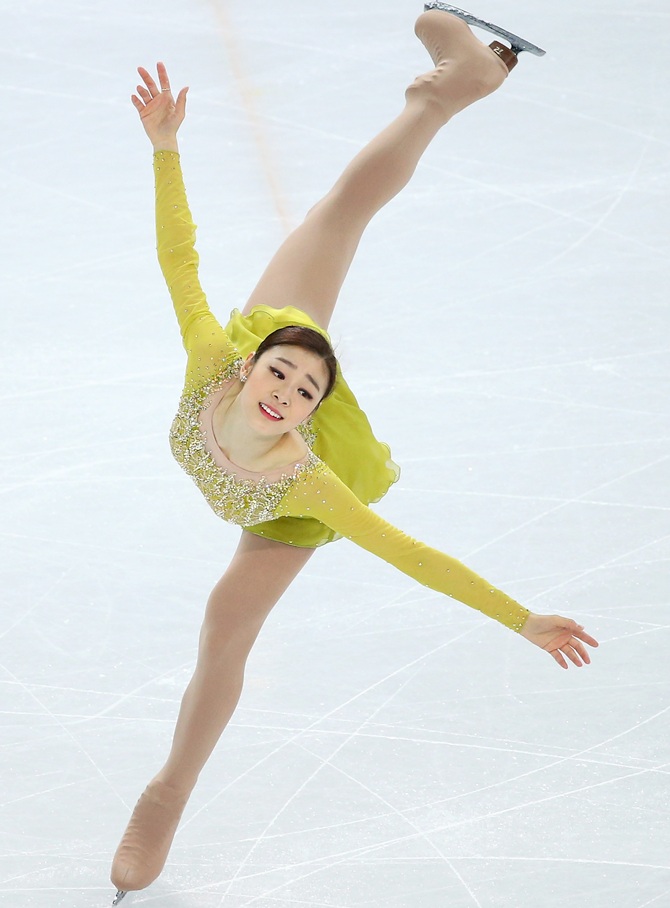
Queen Yuna's reign has finally come to an end and the South Korean could not be happier.
Her final competition before retirement did not have the fairytale ending Kim Yuna or the millions of fans in her homeland wanted.
Instead of winning the gold medal, as she did in Vancouver four years ago, Kim was relegated to the silver medal position behind Russia's 17-year-old Adelina Sotnikova at the Sochi Winter Olympics on Thursday.
If she was disappointed at finishing second, Kim did not show it, smiling and clapping her hands at the flower presentation.
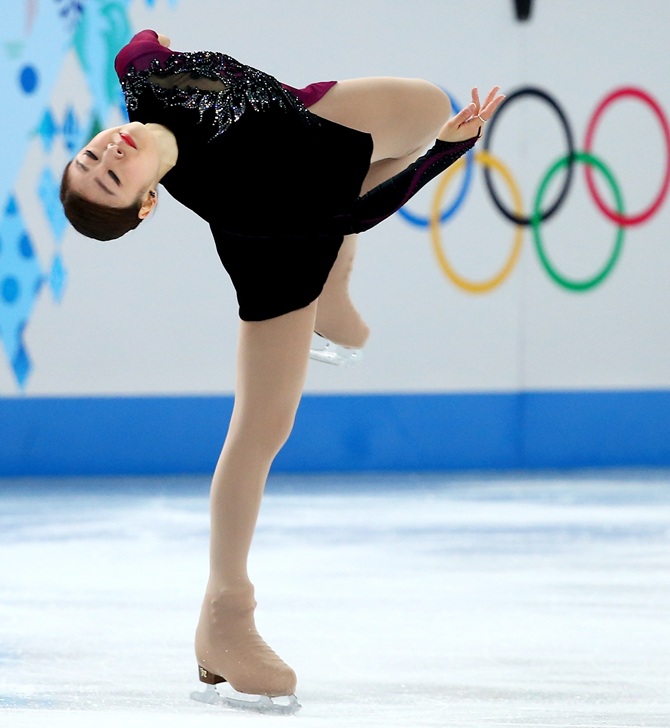
"I felt relieved that I didn't make any mistakes," she said.
"A lot of different feelings were coming to me, the biggest one was relief that it was all over."
Just 23, Kim had already announced before the Olympics that she was hanging up her skates. A megastar in her homeland with a portfolio of lucrative sponsorships, she has been living in the spotlight for years and battling injury problems.
Although she won last year's world championship, Kim was not at her absolute best. She did get the highest score in the short programme but was second overall behind Sotnikova in the long programme.
Kim was the last to skate and, while her routine was almost flawless, she opted to play it safe and complete six triple jumps after the Russian had nailed all seven she attempted.
"I didn't watch the skaters before me because I was preparing my programme," Kim said.
"I just thought I did everything I could. I didn't feel any pressure but it has been four years since Vancouver so I was exhausted."
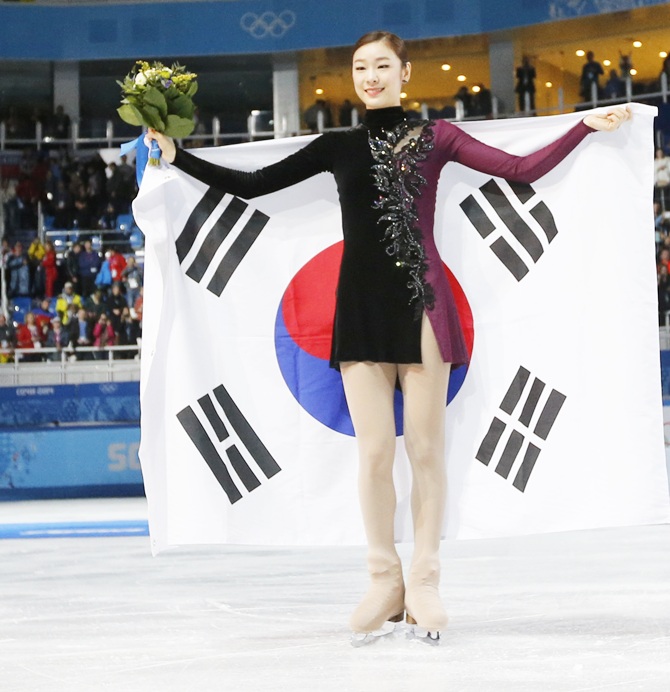
While Sotnikova had the crowd on their feet stomping for more, Kim was emotionless through most of her routine, struggling to even break out a smile until she came back for the flower presentation.
"I'm just so glad it's over. Training is so hard for any athlete," she said.
"I'm so happy to be here because it's my last competition as a skater. When I finished I was so tired."
Had she won, Kim would have joined Sonja Henie and Katarina Witt as the only women to win back-to-back titles in the sport's most-watched event.

There had been rumblings for days that Russian figure skaters were being marked rather generously at the Sochi Olympics, judges seemingly awarding scores with their hearts rather than their heads after being carried on a wave of national euphoria.
Just how much the heart ruled the head became clear on Thursday when, amid deafening roars and frenzied cheers, Adelina Sotnikova became the first Russian to win the women's title with a surprising free skate score of 149.95.
The fact that her victory margin in the long programme was judged to be 5.76 points more than overwhelming favourite Kim Yuna and 7.24 points ahead of bronze medallist Carolina Kostner - who had both produced stirring performances - left even the experts and former champions bewildered.
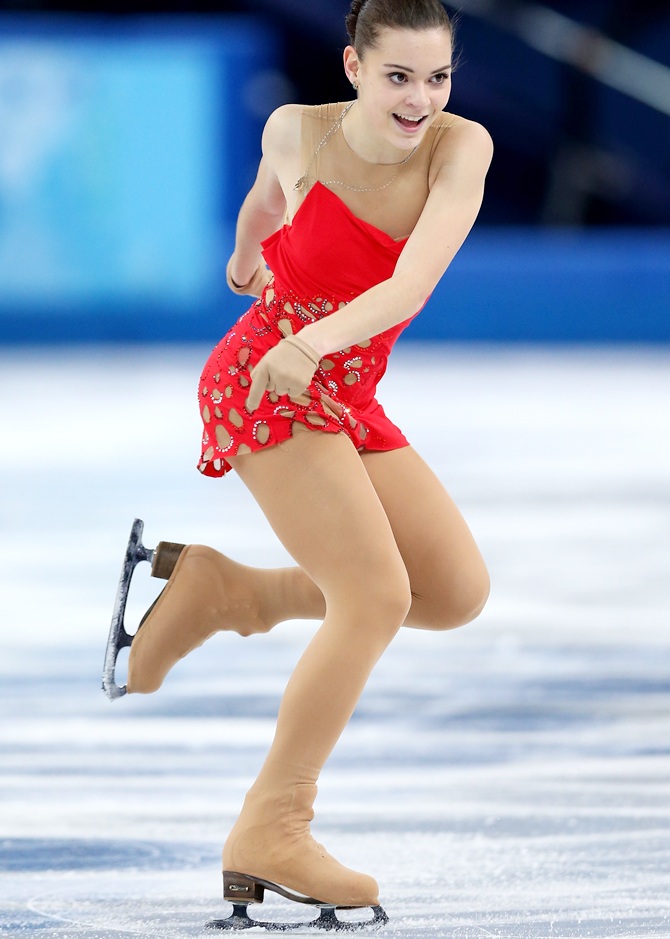
"That is a big, big number. You have to think being in Russia in front of a Russian audience has definitely helped. She (Sotnikova) skated well, I don't know if she was eight points ahead of Carolina Kostner," three-time former US national champion Johnny Weir said while commentating on NBC.
Katarina Witt thought she was about to welcome 2010 gold medallist Kim as the newest member of the 'back-to-back Olympic champion's club' but when the scores flashed up to show the Russian had won, the German was left equally befuddled.
"I am stunned by this result, I don't understand the scoring," Witt, the 1984 and 1988 champion was heard commentating on German TV from her booth at the IcebergSkatingPalace.
And why was everyone left speechless with the result?
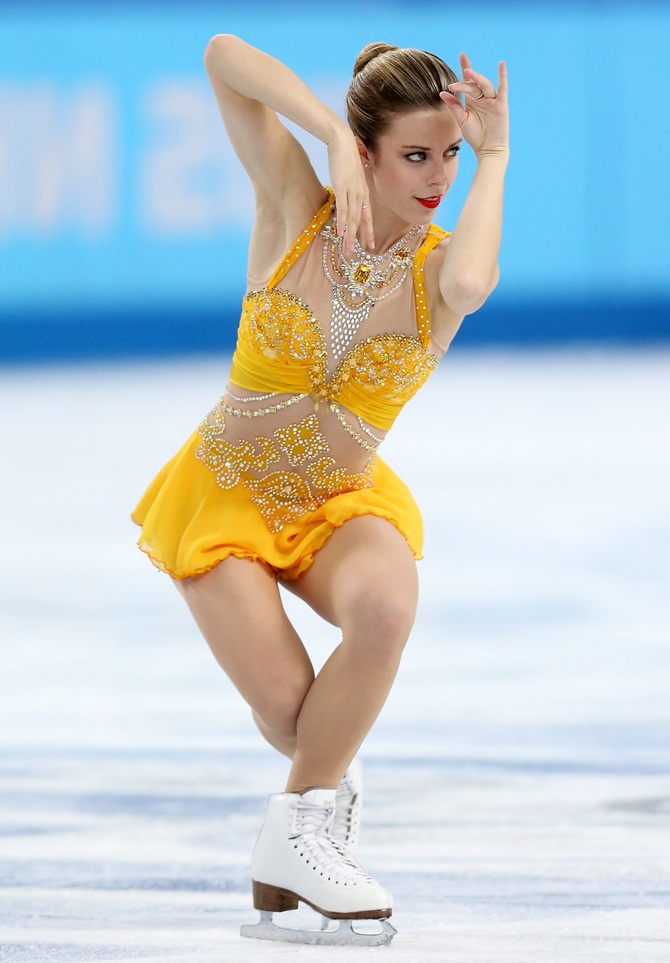
It was because Sotnikova was the only one of the trio, who had been separated by a negligible 0.8 of a point following their short skates, to suffer a snatched landing following one of her jumps.
While the nine-member judging panel would be eager to point out that Kim only attempted six triple jumps compared to Sotnikova's seven, that did not explain why Kostner finished so far behind the Russian even though she too executed every one of her 11 jumps, including seven triples.
"I saw a lot of very nice, decent landings (from Kim) and I am speechless," American Ashley Wagner said after finishing seventh.
"People don't want to watch a sport where you watch people fall down and somehow score above someone who goes clean. It's confusing and we need to make it clear for people.
"People need to be held accountable. They need to get rid of anonymous judging. There are many changes that need to come to this sport if we want a fan base."
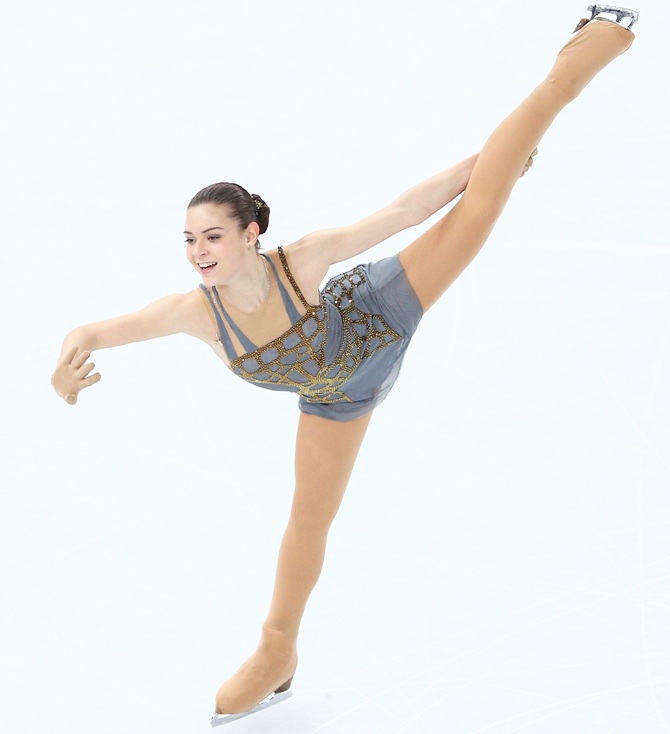
In every event where judges decide the medals, there is always controversy when two competitors are so close. With Kim and Sotnikova skating cleanly, the Russian got the gold on account of her programme being slightly tougher.
Within seconds of the decision being announced, social media went into overdrive with people divided over who should have won but Kim was not buying into the debate.
"The score is given by the judges. I'm not in the right position to comment on it. And my words can change nothing," she said.

"I was the last skater and I couldn't see how the others did. The result was good because I made no mistakes. It's a complicated feeling because the competition is over.
"I didn't watch the skaters so I didn't know about the other scores or how they skated. I can't do anything about this. I did all I could."
Kim said she had struggled to find the same motivation for Sochi that she had four years ago when competing in Vancouver.
"The most difficult thing for me to be able to compete at my second Olympics was the motivation," she said.
"It's different from the Vancouver 2010 Games because I had a clear goal at that time. I could die for a gold medal."
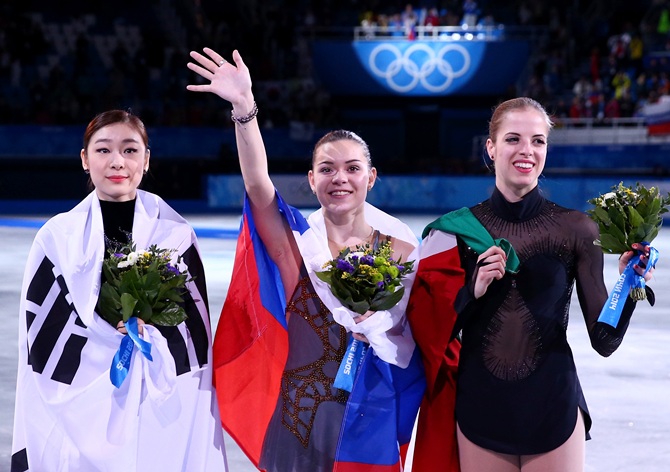
A year after Patrick Chan suffered a backlash after winning the men's world title despite a performance in which it seemed he spent more time on his bottom than on two feet, Sotnikova's win again set tongues wagging.
Within seconds of the decision being announced, Twitter went into overdrive with people divided over who should have won while loyalties and past records of those on the judging panel were scrutinised.
One judge was identified as having served a one-year suspension for trying to fix an event at the 1998 Olympics, while another was named as the wife of the president of the Russian figure skating federation.
Considering the sport's murky past, it is little wonder that people started to delve deep.
It has been over a decade since the 2002 Salt Lake City Olympic judging scandal plunged the sport into a credibility crisis that it is still trying to recover from.
The accumulative scoring system that was introduced post 2002 Olympics as a replacement for the 6.0 system, that was open to corruption and vote swapping, was supposed have made things more transparent.
But it is a scoring system that is harder to understand than the theory of relativity and to make matters worse, judges are able to hide behind a cloak of anonymity as no one knows which score was given by which official.
The outcome of judged sports will always be open to debate but in figure skating there is increasingly little faith that a panel of anonymous men and women sitting rink-side are making the right calls.
Did Kim think the judges got the score right on Thursday?
"I'm not in the right position to comment on it. And my words can change nothing," she said.